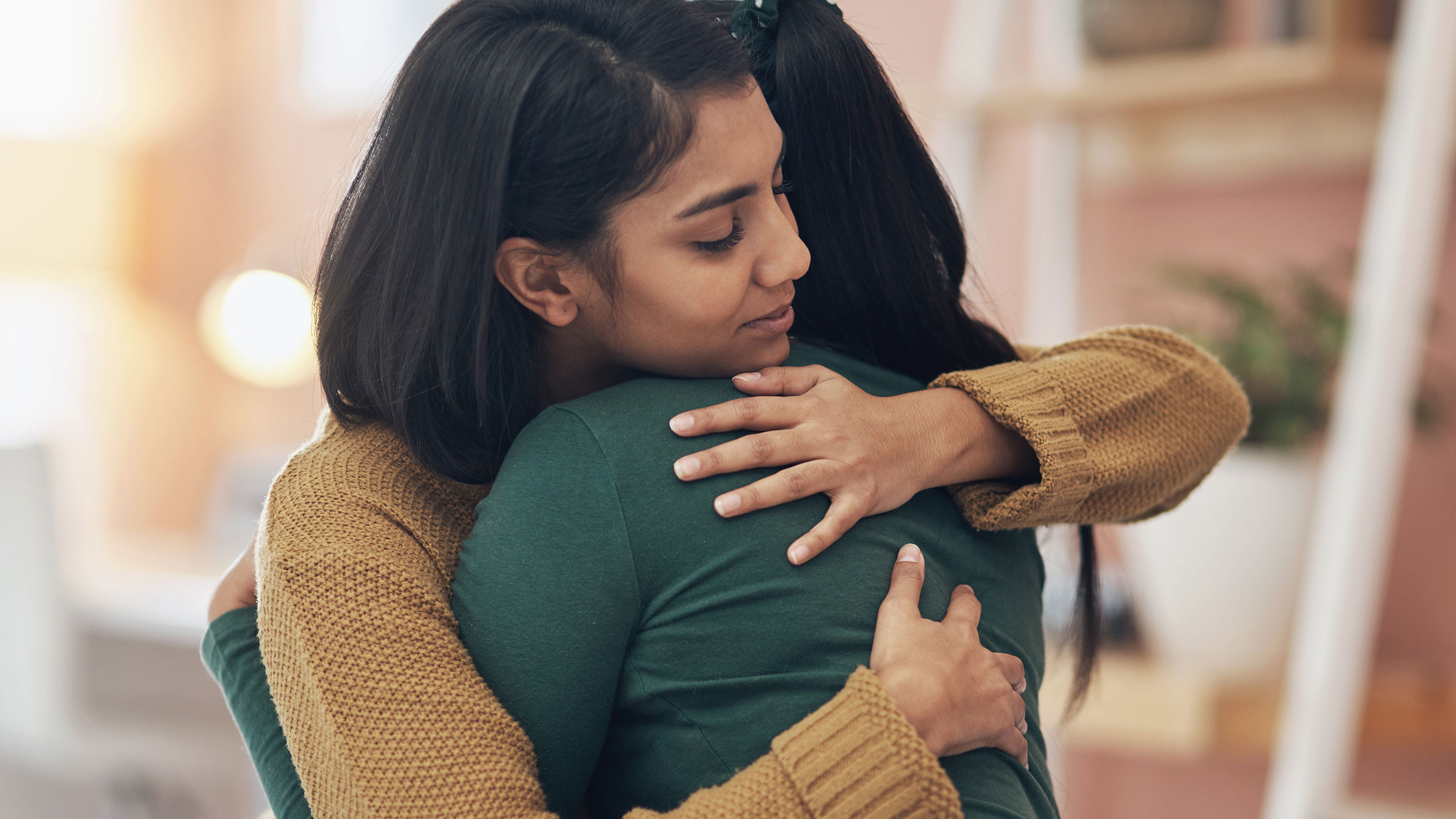We empathize with people with obvious physical health conditions; we sign their casts and send get-well cards and flowers. But people with mental health issues are all too often stigmatized, misunderstood, and ignored. Even those hospitalized with mental health crises often do not receive sympathy, let alone flowers.
As a psychiatrist, I’m deeply grateful when people do their best to help their family and friends suffering from mental illness. Just one caring person can make a world of difference. According to relational-cultural theory, which stems from the work of psychoanalyst Jean Baker Miller, suffering is a crisis of disconnection, while the opposite of suffering is belonging. This resonates with what Buddhism teaches us about interdependence. That is, we suffer because we are under the delusion that we’re separate.
“The important thing is to do our best not to add salt to the wound of disconnection, even as we set boundaries around what we can and will do to help others.”
No one is an island. Relationships are incontrovertibly necessary for human development, and in times of suffering, we can feel isolated and raw if we do not have tangible relationships, or if we do not remember the connections we have. Creating islands of belonging, understanding, safety, and trust in relationships is critical, not just for those with identified mental health concerns, but for all human beings.
The best way to help a loved one is a very individual question, but a good place to start is simply being present. As one of my psychiatry professors used to advise, “Don’t just do something. Stand there.”
Being present and caring toward others helps those who suffer become more present and caring toward themselves. Most of us learn to soothe ourselves when we have been soothed by others. Those who have grown up without much comfort have to actively learn these skills. Caregivers often must deepen their capacities to self-comfort in order to help their loved ones find comfort.
Mindful Self-Compassion, a practice developed by Kristin Neff and Chris Germer, teaches us to offer self-comfort in three components: (1) mindfulness, which includes noting, labeling, and sitting with difficult emotions, experiences, and disconnections, as opposed to letting them run into a story, judgment, or criticism of self or other; (2) the recognition of our common humanity, which entails realizing that any emotion and suffering we experience is shared by many, if not all, people; (3) self-kindness, which means we offer ourselves kindness when we’re suffering.
In difficult moments, we can offer self-comfort by reminding ourselves of the three components. With mindfulness, we can say to ourselves, “This is a moment of suffering.” With the recognition of our common humanity, we can say, “Suffering is a part of life.” And with self-kindness, we can say, “In this moment of suffering, may I at least be kind to myself.”
Over 1,600 research trials have shown that self-compassion is associated with fewer negative states, such as depression, anxiety, emotional avoidance, stress, and shame and with more positive states such as happiness, life satisfaction, social connectedness, optimism, and better physical health. Giving ourselves the warmth and spaciousness to be with our suffering allows us to investigate the difficult stories of our lives, so we can make better choices about how to support ourselves and ally with others.
Our emotional responses to our loved ones’ suffering can be overwhelming. Caregiver stress and burnout are real. We must learn how to recognize when we are overwhelmed, and learn what we can do to bring ourselves back into comfort and safety before we reengage with a challenging situation. This is for the mutual benefit of both our loved ones and ourselves, since our well-being is inextricably tied to the well-being of our loved ones. Caring for yourself is vital in order to care more deeply for others.
While our care can make a critical difference in the lives of those in distress, it also takes a village. It’s important to reach out to skilled professionals and supportive communities creatively and proactively. There is a web of trauma and suffering in our world, but we can transform it into a web of healing by cultivating our own node of the web and connecting to others who are similarly engaged.
Yet what about feelings of hopelessness, powerlessness, and inadequacy that arise when we see our loved ones struggle with mental illness? My advice: join the club.
In Psychotherapy Without the Self, Mark Epstein writes of the profession of psychiatry, “What other occupation requires of its practitioners that they be the objects of people’s excoriations, threats, and rejections?…What other occupation has built into it the frustration of feeling helpless, stupid, and lost as a necessary part of the work? And what other occupation puts its practitioners in the position of being an onlooker or midwife to the fulfillment of others’ destinies?”
Well, I know of many such occupations. They are called mother, father, sibling, partner, and friend. We are all carers in an often hostile and callous world, helping those who are overwhelmed and lost. How could we not feel the tug of our loved ones’ upheaval?
To those who have felt powerless and lost: you are not alone. Buddha’s first noble truth verified reality: life is difficult and entails suffering and hardship. This is the human condition. The important thing is to do our best not to add salt to the wound of disconnection, even as we set boundaries around what we can and will do to help others.
Mental health is not possible without meaning. Perhaps the fundamental mental health crisis in the world is that some try to find meaning and power in not investing in the well-being of others. This threatens to destroy the entire human project, and even the project of life on Earth. We are all related, so we find true meaning and purpose in caring for others. To paraphrase lawyer and social justice activist Bryan Stevenson, we find our embodiment as humans in our proximity to suffering.
I have lost friends and patients to suicide, violence, and addiction. I have not forgotten them. The possibility of loss and the reality of the losses we experience can help us strive for ever more skillful means of caring, loving, and being. In the end, perhaps we cannot save everyone. But in caring, we save what is most precious in us, and advance the cause of compassion throughout our connected, awe-inspiring, tragic, and sometimes hopeful human voyage.

